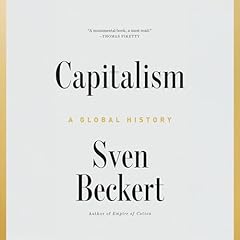
After the Spike
No se pudo agregar al carrito
Solo puedes tener X títulos en el carrito para realizar el pago.
Add to Cart failed.
Por favor prueba de nuevo más tarde
Error al Agregar a Lista de Deseos.
Por favor prueba de nuevo más tarde
Error al eliminar de la lista de deseos.
Por favor prueba de nuevo más tarde
Error al añadir a tu biblioteca
Por favor intenta de nuevo
Error al seguir el podcast
Intenta nuevamente
Error al dejar de seguir el podcast
Intenta nuevamente
 Exclusivo para miembros Prime: ¿Nuevo en Audible? Obtén 2 audiolibros gratis con tu prueba.
Exclusivo para miembros Prime: ¿Nuevo en Audible? Obtén 2 audiolibros gratis con tu prueba.
Elige 1 audiolibro al mes de nuestra inigualable colección.
Acceso ilimitado a nuestro catálogo de más de 150,000 audiolibros y podcasts.
Accede a ofertas y descuentos exclusivos.
Premium Plus se renueva automáticamente por $14.95 al mes después de 30 días. Cancela en cualquier momento.
Compra ahora por $19.49
-
Narrado por:
-
Sean Patrick Hopkins
What if the challenge for humanity’s future is not too many people on a crowded planet, but too few people to sustain the progress that the world needs?
Most people on Earth today live in a country where birth rates already are too low to stabilize the population: fewer than two children for every two adults. In After the Spike, economists Dean Spears and Michael Geruso sound a wakeup call, explaining why global depopulation is coming, why it matters, and what to do now.
It would be easy to think that fewer people would be better—better for the planet, better for the people who remain. This book invites us all to think again. Despite what we may have been told, depopulation is not the solution we urgently need for environmental challenges like climate change. Nor will it raise living standards by dividing what the world can offer across fewer of us. Spears and Geruso investigate what depopulation would mean for the climate, for living standards, for equity, for progress, for freedom, for humanity’s general welfare. And what it would mean if, instead, people came together to share the work of caregiving and of building societies where parenting fits better with everything else that people aspire to.
With new evidence and sharp insights, Spears and Geruso make a lively and compelling case for stabilizing the population—without sacrificing our dreams of a greener future or reverting to past gender inequities. They challenge us to see how depopulation threatens social equity and material progress, and how welcoming it denies the inherent value of every human life. More than an assembly of the most important facts, After the Spike asks what future we should want for our planet, for our children, and for one another.
Los oyentes también disfrutaron:




















Las personas que vieron esto también vieron:













The element that pushed me down from 4 to 3 stars was the main recommendation. It felt to me as if we had just finished establishing that making parenthood more affordable (financial and otherwise) resulted in a positive effect that was, nonetheless, too small to solve the problem, then the solution presented was to...make parenthood more affordable. Perhaps I missed something, but I didn't hear the solution of cultural shift (working to make parenting more children a higher-status life choice, perhaps akin to becoming a nurse, school teacher, or serving in the military) discussed much at all, and I would have thought that would be the obvious most effective approach.
Useful
Se ha producido un error. Vuelve a intentarlo dentro de unos minutos.
Very thought provoking
Se ha producido un error. Vuelve a intentarlo dentro de unos minutos.
Clear, compelling, and deeply important
Se ha producido un error. Vuelve a intentarlo dentro de unos minutos.
Good Start, Weak Finish
Se ha producido un error. Vuelve a intentarlo dentro de unos minutos.
But the narrative never really holds together. On one hand, they dismiss population bomb fears, yet they gloss over the thousands of years humanity spent trapped in Malthusian subsistence and the very real role that family planning played in avoiding widespread famine. They also downplay the risks of climate change as overly solvable while simultaneously being pessimistic about cultural change to increase fertility—a strange asymmetry.
The biggest weakness is urgency. For most of the book, they frame population decline as a looming crisis, but in the final chapters they admit the real concern is more like 2125 and that it’s “never too early” to start talking. That left me wondering what all the fuss was about.
In the end, it reminded me of The Economist’s fixation on growth for its own sake—too focused on economic expansion, too quick to worry about population dips. Compared to other books that challenge cultural narratives, like Richard Reeves’ Of Boys and Men, this one felt less convincing because it leaned too heavily on selective framing rather than letting the facts speak plainly.
Great information, but the argument doesn’t quite add up.
Great facts but narrative doesn’t add up
Se ha producido un error. Vuelve a intentarlo dentro de unos minutos.


